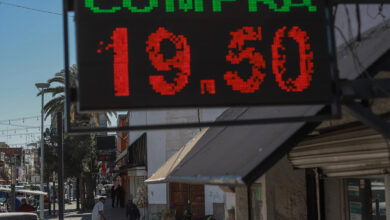The problem of tax evasion in Latin America
Economic problems are intensifying in Latin America due to the coronavirus, but tax evasion remains structural
Economic problems are intensifying in Latin America due to the coronavirus, but tax evasion remains structural.

Some multinationals are using “tax tricks” to evade taxes. / Photo: Pixabay
LatinAmerican Post | Ariel Cipolla
Listen to this article
Leer en español: El problema de la evasión fiscal en América Latina
The tax regime implies that we all collaborate so that many improvements proposed by the State are put in place. However, some people or entities use some "tax tricks" to pay less than what they owe. It seems that is the case with Donald Trump, since, according to the CNN website, the current president of the United States is accused of "tax evasion."
From Bolsa Manía they add that it would be a tax evasion during the last 15 years, but that it came to light because the current president only paid $ 750 in income tax for 2016. That is, much less than what it would correspond to him for his financial obligations.
Knowing that, as highlighted by the UN News website, "tax evasion in Latin America is an obstacle to recovering from the coronavirus," we decided to find out what the situation is with respect to compliance with existing tax obligations in our region, being keys to maintaining the balance of responsibilities.
Tax evasion in Latin America
Although we are used to suffering from different economic crises, the focus is rarely on tax evasion. La Vanguardia highlights that it is an important problem, in the sense that the decision not to pay taxes "suffocates Latin America", since the gross public debt of the governments of 18 countries had increased by 42.3% of the GDP in 2018, while tax fraud equals $ 335 billion.
From the Inter-American Center of Tax Administrations they also focus on the fact that the problem should be a "wake-up call for everyone." In general terms, both Latin America and the Caribbean are characterized by having a relatively low fiscal pressure, which oscillates by averaging approximately 22.8%.
This can be especially important when we consider that the wealthy may sometimes pay the least in taxes. For example, the BBC highlights that in Latin America the wealthiest people used different maneuvers to hide their money and evade taxes, something that was revealed in the so-called Panama Papers.
In regional terms, it could be said that the richest 10% own 71% of the wealth, while only paying 5.4% of their income, according to a report by the Economic Commission for Latin America and the Caribbean. In other words, the trend implies an even greater imbalance, as tax havens are used for millionaires to “launder” money.
In the case of Argentina, we see that the tax issue for large economic groups is being debated. From Page 12 they mention that the country's tax structure was "emptied of tools" to control flight and evasion, which is why the wealthiest people in the country can take advantage of different mechanisms to evade their responsibilities.
Even, from the field, they emphasize that the Argentine government obtained an opinion so that the project of solidarity contribution to large fortunes is presented, being an exceptional measure that could impact some 10,000 people, seeking to improve the country's economy in the midst of the COVID-19 crisis.
Also read: What is the right to digital disconnection?
However, it is not the only case where the tax problem is important. For example, in Brazil there was talk of a “historical figure” in terms of tax evasion during 2017, adding some 205,000 million reais depending on the demands, which further deepens the economic inequality present in the region.
Therefore, everything seems to indicate that, as the Infobae website mentions, there is a “tax culture” where businessmen believe they feel the need for evasion in order to compete in the market, although many others seem to do so, simply, for avarice. In Latin America, it will be essential to see how the states solve a structural problem that has been affecting the population for a long time.




